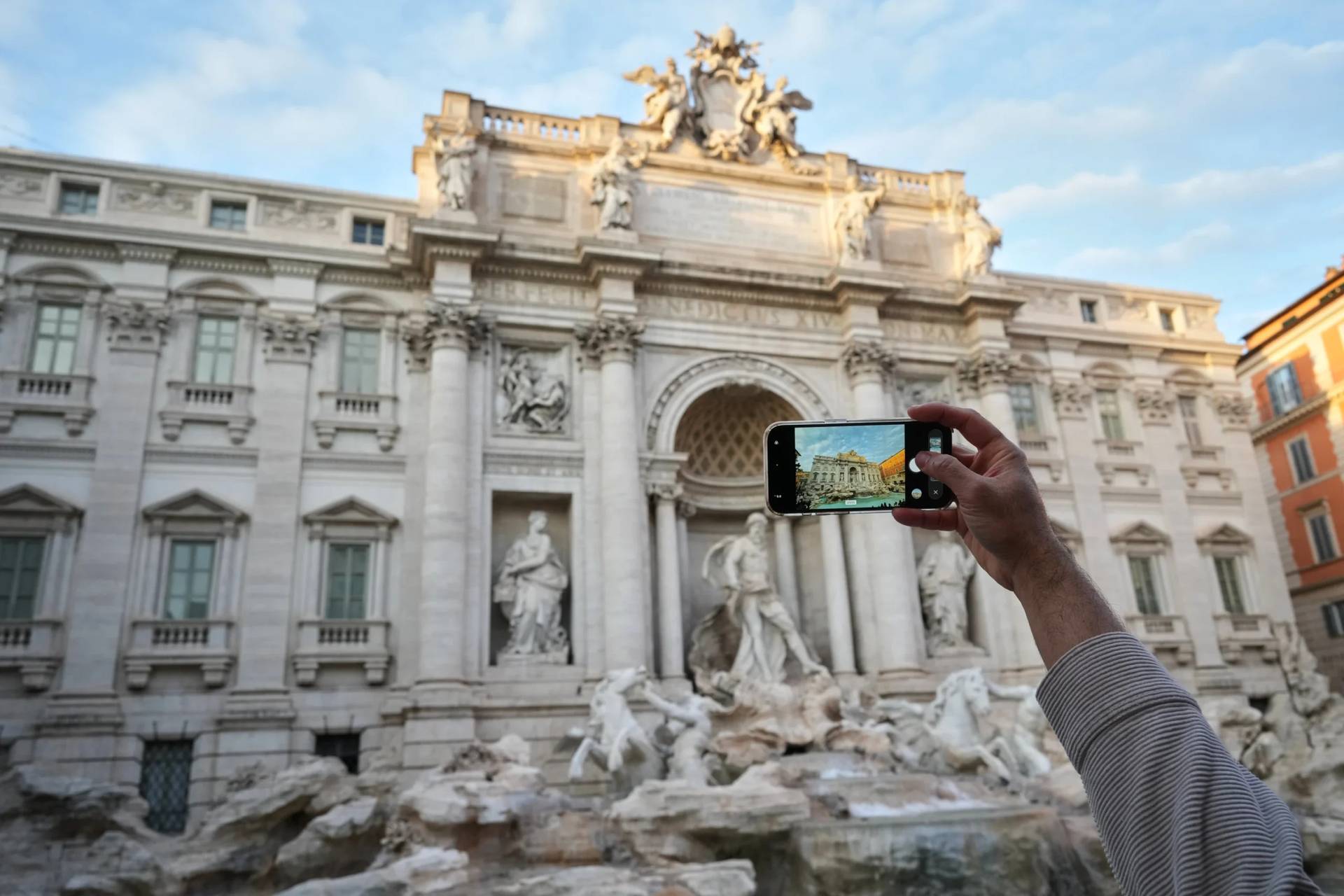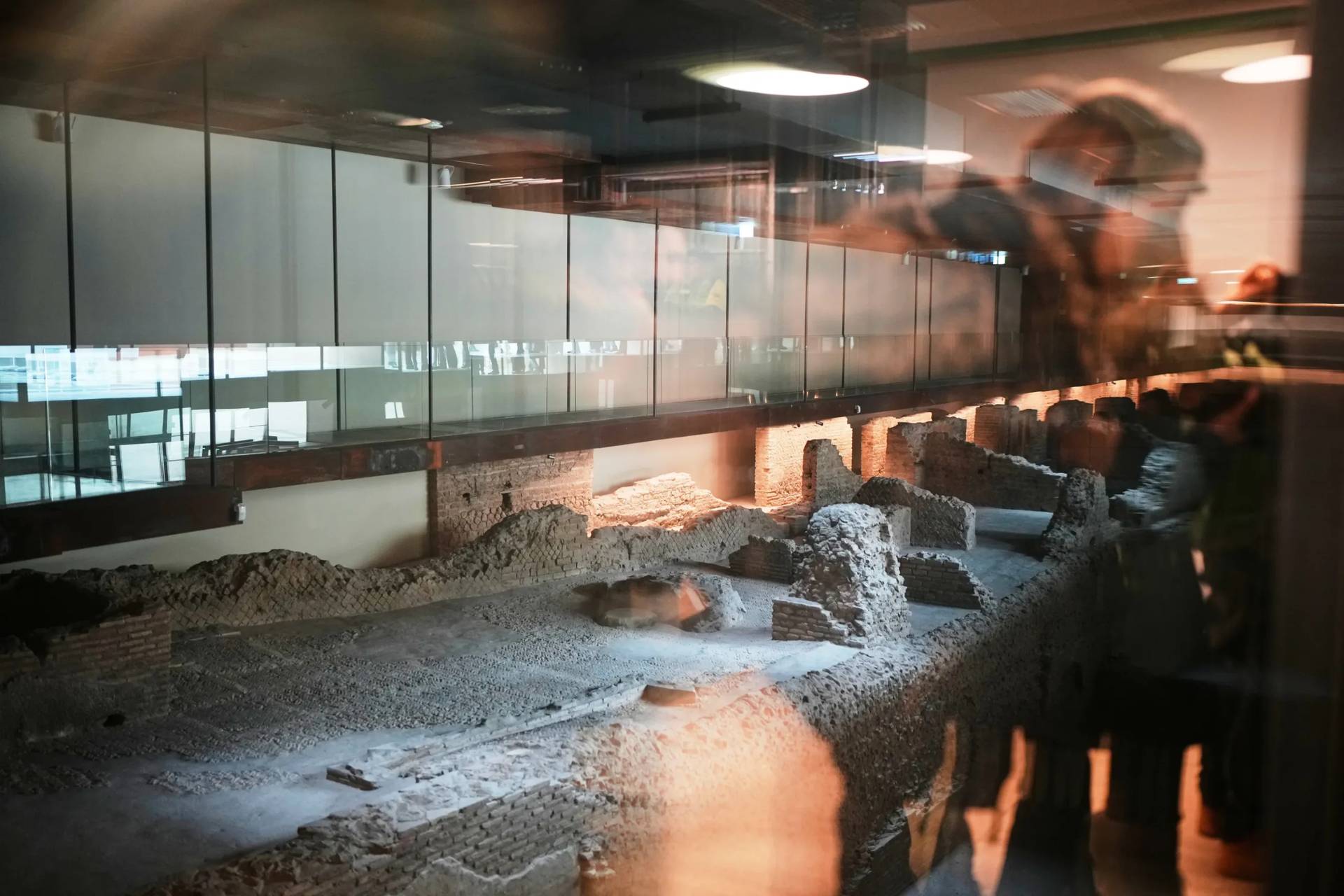ROME – Italy’s most famous populist and hardliner on immigration, and the man now seemingly poised to take control of the country all by himself, has denied that there’s any conflict between himself and Pope Francis and said meeting the pontiff would be a “great honor.”
Matteo Salvini, currently Italy’s Interior Minister and Deputy Prime Minister, made the comments in a forthcoming interview with the Italian magazine Oggi (“Today”).
“Millions of Italians voted for me – for the most part, I believe, Catholics – [so that] I’ll defend the borders and suppress the traffic in human beings,” Salvini said. “My duty is to make decisions, sometimes painful and difficult, but necessary to establish rules that benefit everyone.”
“Beyond some excessive polemics that I don’t share, I believe the occasions in which we collaborate [with the Vatican] are far more numerous” than cases of conflict, Salvini told the magazine.
Salvini took office in 2018 as part of a coalition government between his far-right League party and the left-wing Five Star movement. Last week, Salvini announced he was pulling out of that coalition and called for new elections, immediately switching to campaign mode with large rallies touting his tough anti-immigrant stance.
Those policies, including refusing to allow boats carrying refugees rescued from the Mediterranean Sea to dock in Italian ports, have drawn wide protest both domestically and internationally. Over the weekend, even the Hollywood icon Richard Gere got in on the act, boarding a ship operated by the Spanish NGO Open Arms carrying 160 migrants and calling Salvini’s refusal to let it dock “shameful.”
Yet Salvini also enjoys strong support among Italians frustrated with the ongoing refugee crisis and what they see as the disproportionate share of the burden Italy has been forced to shoulder within the EU. Polls suggest Salvini’s League party could capture as much as 40 percent of the vote, which is not enough to govern alone, but it’s far more than any other political faction commands.
From the beginning, Salvini has been styled by many Italian commentators as an “anti-Francis,” the antithesis of a “culture of encounter” promoted by the pontiff, and it’s widely believed that Francis’s Vatican is hostile to Salvini and his League party.
In a recent interview, Pope Francis compared modern populism to the sort of rhetoric associated with the Nazis and warned that “sovereignism,” meaning an exaggerated emphasis on national sovereignty, “always ends badly, carrying us to war.” The fact those comments came just one day after Salvini effectively brought down the government and set the stage for new elections didn’t escape notice.
One Italian newspaper headlined its coverage this way: “Pope Francis opens the electoral campaign against Salvini.”
“Pope Francis isn’t wasting any time, opening his electoral campaign at record speed,” wrote the center-right newspaper Libero. “Obviously he was attacking sovereignism, even if he didn’t name Salvini.”
Italian media outlets have also made much of the fact that to date Salvini hasn’t met Francis, despite the fact that protocol officers on both sides have stressed that it isn’t customary for the pope to receive a Deputy Prime Minister.
In his new interview, Salvini said he would consider it a “great honor” to have such a meeting, effectively dismissing speculation that he’s been the one preventing it from happening.
Salvini also responded to criticism of his use of Catholic symbolism in political settings. He’s known for holding a rosary while he gives press conferences and talks, and for often brandishing a Bible during speeches. Last year the Catholic magazine Famiglia Cristiana (“Christian Family”) published a cover story on Salvini under the headline Vade Retro, a reference to the Latin form of a phrase from the exorcism ritual, “Get behind me, Satan!”
Recently Father Virginio Colmegna, an Italian priest who’s president of a well-known organization called the Casa della Carità (“Charity House”) serving the homeless, gypsies and other marginalized groups, which was launched in Milan under the late Jesuit Cardinal Carlo Maria Martini, blasted Salvini’s repeated invocations of Mary and the rosary.
“Religious faith isn’t a supermarket product to be exhibited in order to attract votes,” Colmegna wrote in a blog post. Noting that Mary was a Palestinian Jew who lived under Roman domination and was once a refugee herself, Colmegna added, “If you’re going to cite something, at least make an effort to learn what you’re citing.”
The Italian priest called Salvini’s use of Catholic symbols “obviously provocative and offensive to anyone who believes in the great values of closeness in the Gospel.”
Italian layman Enzo Bianchi, founder of the celebrated ecumenical monastery of Bose, was equally scathing.
“There’s a difference between sinners and inhuman persons,” Bianchi wrote. “There’s a difference between those who can’t quite live the Gospel, and those who insult and deny it. Sinners can invoke the Madonna, but those who are inhuman should blush simply to mention her name.”
In his Oggi interview, Salvini conceded that his Catholic credentials aren’t flawless.
“I’ve never made a secret of being the last one to be a good Christian,” Salvini said. “I’m divorced with two children from different women, so why would I risk preaching morality to somebody else?”
“However, like millions of other Italians, I’m Christian and Catholic, no more and no less,” he said. “Unfortunately, I mainly go to Mass for funerals, but fortunately also for weddings and baptisms.”
Referring to critics who object to his overt display of Catholic symbols, Salvini said, “I dare say that if they did a tour on the street they would notice that for so many people to show a small religious sign is a source of daily pride.”
Salvini also appeared to rebuff suggestions that he’s responsible for difficulties experienced by the Catholic Church in Italy.
“If indeed the Church is losing something of its identity, not only the hierarchy must be questioned, but each one of us, in humility and conscience, because perhaps certain answers are found first ‘inside’ and [then] ‘outside’.”
Heads of political groups in the Italian senate are set to meet today to decide when to call a motion of no-confidence in the current government, which could set the stage for new elections. Many observers expect that vote to take place in October.
Follow John Allen on Twitter: @JohnLAllenJr
Crux is dedicated to smart, wired and independent reporting on the Vatican and worldwide Catholic Church. That kind of reporting doesn’t come cheap, and we need your support. You can help Crux by giving a small amount monthly, or with a onetime gift. Please remember, Crux is a for-profit organization, so contributions are not tax-deductible.















